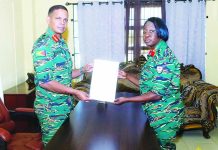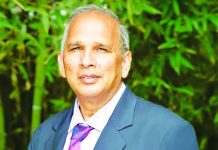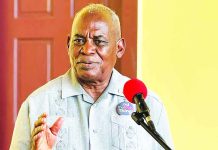Chief Justice (ag) Roxane George this afternoon raised several issues pertaining to the two election petitions filed by the APNU/AFC Coalition.
The issues were raised during the case management conference of the petitions which was heard today.
The APNU/AFC Coalition filed its first election petition on August 31.
The second petition was filed on September 17.
However, the CJ raised the issue of “late service” in the case of the second petition; meaning that the named respondents were not served in the stipulated timeframe.
The other issue, the CJ raised, is the fact the interest of the second respondent (who is APNU/AFC Leader David Granger) conflicts with the two petitions.
Both petitions are seeking for Granger’s APNU/AFC to be declared winner of the March 2 General and Regional Elections.
The CJ made this observation based on the fact that a respondent, “who has given notice of intention not to oppose the petition shall not be allowed to appear or act as a party against the petition in any proceedings thereof”.
This, she highlighted, is in keeping with the Validity of Elections Act.
The Chief Justice said if one is not opposing the petition, then they have to indicate to the court so they would not have to be a party.
Meanwhile, PPP/C’s attorney, Douglas Mendes, SC raised another point in relation to service of the petitions whereby the PPP/C – which is the fourth named defendant – was not served with the petitions in accordance with established procedures. As a result, Attorney Mendes argued that the petitions are null.
The Chief Justice has asked Mendes to make applications/submissions on this matter and has set dates for the petitioner and the Attorney General Anil Nandlall to respond. This matter is fixed for hearing on November 24 and 25 at 09:30hrs.
With regards to the issues raised by the Chief Justice, dates were also given to the parties involved to file relevant affidavits and that matter is fixed for hearing on November 30 and December 1.
Following the hearing and determination of these preliminary issues, the Chief Justice will then make a decision on how to proceed with the substantive election petitions.











